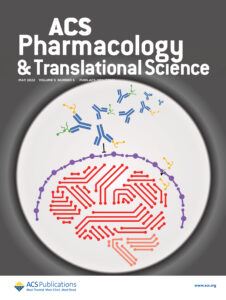
Marco Pravetoni
Rick L. Seaver Endowed Professor for Brain Wellness, Department of Psychiatry and Behavioral Sciences
Lead Scientist, Garvey Institute for Brain Health Solutions
Director, Center for Medication Development for Substance Use Disorders and Overdose
mprave@uw.edu
Marco Pravetoni faculty page
What is your Research Focus?
Current medications are not always sufficient to treat substance use disorders and prevent or reverse drug overdoses. This has resulted in a dramatic increase in fatal and non-fatal overdoses, accelerated by the COVID-19 pandemic. More than 72,000 opioid-related fatal overdoses occurred in 2020, the highest number of overdose deaths ever recorded in a year. A growing body of research suggests that immunotherapeutics such as vaccines and monoclonal antibodies (mAbs) can treat and prevent addiction and overdose. Marco Pravetoni, PhD, uses these novel strategies to develop new medical interventions for substance use disorders and overdose and is among the first to test these new interventions in humans.
Dr. Pravetoni’s team has identified promising vaccines against heroin, oxycodone, fentanyl, and their derivatives or combinations. His team is currently testing a lead oxycodone vaccine in the first-in-human Phase I clinical trial. Vaccination generates antibodies against oxycodone so whenever the drug is ingested again, the antibodies are sequestered. This prevents the oxycodone from entering the brain, and thus preventing reward, pharmacological and side effects. Heroin and fentanyl vaccines are close to clinical trial testing as well. Due to their selectivity, these vaccines do not interfere with methadone, buprenorphine, naltrexone and naloxone, or other important medications such as anesthetics used in critical care.
Dr. Pravetoni’s team has developed mAbs to treat and reverse overdose from fentanyl, often found in street drug mixtures. Monoclonal antibodies are expected to address some of the shortcomings of naloxone, which is often not as effective against synthetic opioids such as fentanyl and its analogs. In contrast to existing pharmacotherapies, since the antibodies are biologically active large molecules, they stay in the patient system days instead of hours, aiding the patient for longer. Dr. Pravetoni and colleagues are currently readying the anti-fentanyl mAb to be tested in a clinical trial. The group is leveraging a variety of technologies such as adjuvants, nanotechnology, formulations, immunomodulators, in combination with cellular and molecular mechanisms of efficacy, biomarkers, sequencing strategies in patients to create the next-generation of theareputics for substance use disorders and applying these concepts to other chemical threats as well as SARS-CoV-2, metastatic cancers and malaria.
What opportunities at the UW excite you?
Being at a top-ranked institution such as UW, I am excited to be surrounded by unsurpassed researchers, clinicians, and facilities, working in such large-scale collaboration to drive new medical discoveries from conceptualization to patient. Seattle has a vibrant ecosystem for both academic and entrepreneurial research activities, and I see this is the place to propel our new innovations for opioid use disorders and overdose interventions. As an avid hiker and skier, I also enjoy the unique geographical landscape of the Pacific Northwest.

Dr. Pravetoni and (now) Dr. Bethany Crouse were selected for the cover of ACS Pharmacology & Translational Science.
“Antibodies produced via active immunization with an anti-opioid vaccine sequester opioid in the blood and prevent it from crossing the blood-brain barrier. This, in turn, attenuates opioid-induced effects associated with misuse and overdose. Created with BioRender.com.”
Efficacy and Selectivity of Monovalent and Bivalent Vaccination Strategies to Protect against Exposure to Carfentanil, Fentanyl, and Their Mixtures in Rats
ACS Pharmacol. Transl. Sci. 2022, 5, 5, 331–343
Publication Date: April 20, 2022
https://doi.org/10.1021/acsptsci.1c00260